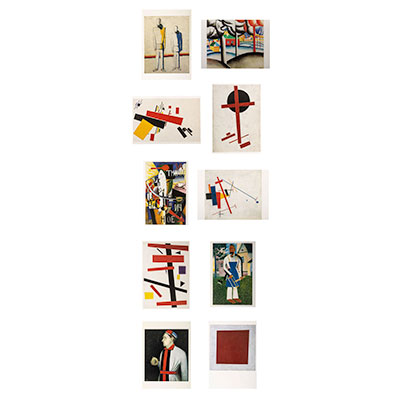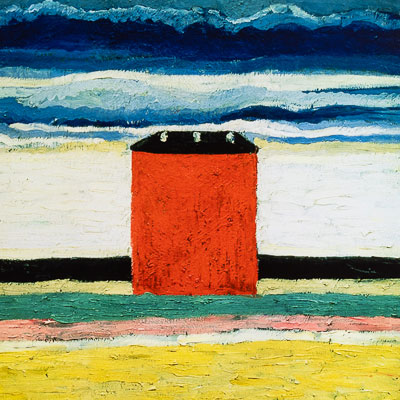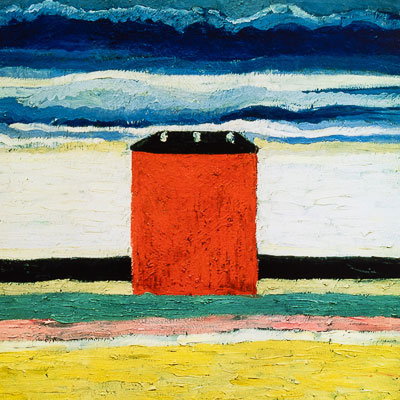Tel : (+33) 4 94 63 18 08
9am - 6pm from Monday to Saturday
Suprematism - Constructivism
Suprematism is an artistic and cultural movement founded in Russia in 1915 by painter Kazimir Malevitch, who was a pioneer of abstract art. This movement advocates for simplification and formal purity, aiming to eliminate all distractions and create art based on simple geometric shapes such as circles, squares, and triangles. Colors were often reduced to simple primary colors and composition was organized systematically to create a harmonious order. Suprematist artists supported the idea that these abstract forms could represent a deeper spiritual reality and offer a unique spiritual experience to the observer. Suprematism has had an influence on many other avant-garde movements, including Constructivism and Abstract Expressionism. Constructivism, on the other hand, emerged in Russia at the end of World War I. This movement was founded on the idea that art can be used to construct a new and more just society. Constructivists worked in various fields, including painting, sculpture, photography, architecture, and decoration. They were also very active in political and social domains and believed that art should be used to promote socialist ideas. Suprematism and Constructivism were both influenced by modernist artistic movements of the early 20th century, such as Futurism, and were very important for the evolution of abstract art.
Discover the artist
Malevitch Kasimir
Kasimir Malevich was a Russian avant-garde artist and art theorist, born on February 23, 1879 in Kiev, Ukraine. He was a pioneer of the abstract art movement, known as Suprematism, which he founded in 1915. Malevich is considered one of the most influential artists of the 20th century. He began his artistic journey as a figurative artist, but gradually turned towards abstraction in his works. He was influenced by the modernist art movements of the early 20th century, such as Futurism, and his ideas about abstract art were formed by his study of the works of artists such as Pablo Picasso and Georges Braque. Malevich's Suprematism is considered one of the first non-objective movements of modern art. He believed that art should exist for itself, rather than simply representing reality, and that elements of form and color were more important than representing the subject. This idea is reflected in his works, often composed of geometric shapes and primary colors. Malevich's 1915 painting, "Black Square," is considered one of the most iconic works of the 20th century and remains a major symbol of the Suprematism movement. He continued to develop and refine his ideas about abstract art throughout his career, and his works have been the subject of numerous exhibitions and retrospectives over the years since his death. Malevich died in Leningrad (now St. Petersburg) on May 15, 1935, at the age of 56.







